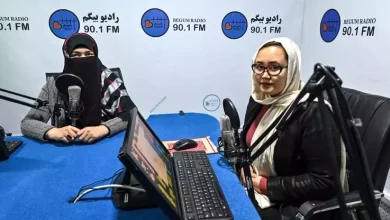
Media Freedom Violations in Afghanistan Increase by 58% Compared to Last Year, AFJC Says
On the eve of May 3rd (World Press Freedom Day), the Afghanistan Journalists Center (AFJC) has reported increased pressure on media outlets and journalists in the country. In a newly released report, the organization warns of an unprecedented decline in press freedom and a rise in journalist detentions.
According to the report published today (Friday, May 2), at least 215 cases of media freedom violations have been recorded in the country since May 2024. This marks a 58% increase compared to the previous year. The documented cases include 175 threats and 40 arrests of journalists. Currently, 10 journalists remain in prison, with seven of them sentenced to prison terms ranging from seven months to three years.
The AFJC stated that over the past year, the Taliban government has issued seven new media directives. Combined with 16 previous directives, these have imposed extensive restrictions on media activities. These restrictions include a ban on broadcasting images of living beings, prohibition of cooperation with exiled media, a ban on live political and economic panel discussions, and a ban on women-focused media outlets in some provinces.
The report also highlights the increasing involvement of the Ministry for the Promotion of Virtue and Prevention of Vice in media affairs. The ministry has not only issued restrictive directives but has also played an active role in shutting down media outlets and arresting journalists.
According to the findings, nine audio-visual media outlets were temporarily shut down, and 25 TV channels have been converted into radio stations—primarily due to the ban on broadcasting images of living beings in 17 provinces.
The center also points to growing pressure on female journalists, stating that in some cases women have been banned from working or forced to work from home. In particular, in Badakhshan province, pressure on women-oriented media has intensified to an unprecedented level, with two women’s radio stations facing the risk of closure.
Expressing concern over the negative consequences of these developments for society, the AFJC has called for the removal of restrictions and respect for freedom of expression and access to information.
Meanwhile, according to the 2025 World Press Freedom Index published by RSF, Afghanistan ranks 175th out of 180 countries worldwide.



